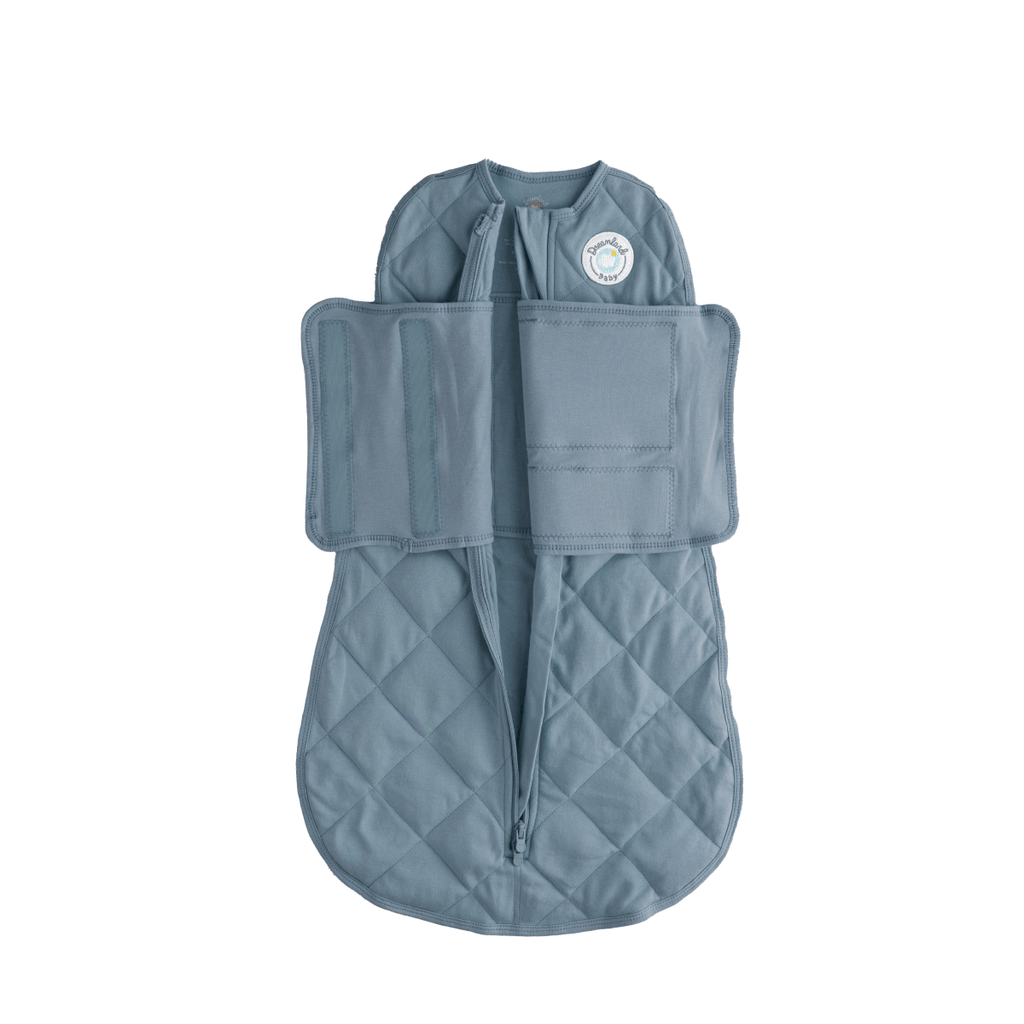Should you swaddle a baby with reflux?
When it comes to baby spit up, we’ve all been there. Baby seems to be well fed, happy, and burped… and just when you feel confident moving the burping cloth out of the way, voila, baby spits up again and it goes everywhere – mostly over you! But infant reflux is typically not a cause for concern as it happens with even the healthiest of babies, several times a day. But what is infant reflux? It’s what happens when baby literally spits up their food. Also known as infant reflux, it occurs when food moves up from a baby's stomach, which is often times accompanied by gurgling, burping noises. Disgusting? Sometimes. Typical? Usually. As long as your baby seems well fed and is growing well, reflux is very common and usually gets better on its own without need for medical intervention.
What are signs of reflux in babies?
Every baby is different but here are some common symptoms of infant reflux:
- Baby brings up their food shortly after feeding
- Coughing or hiccupping while eating
- Seems restless while eating
- Swallowing or gulping after burping or feeding
- Baby cries often, can’t seem to settle
- Baby not thriving or growing
As with any concerns you may have about your infant, discuss with your pediatrician, especially if their reflux is worrisome – always trust your gut instincts!
Does swaddling help with reflux?
If you’re curious if you should swaddle a baby with reflux, the answer is, it could help. Swaddling helps to soothe a fussy baby by wrapping them nice and tight (but not too tight) in a swaddle blanket. This could alleviate symptoms of infant reflux simply because the purpose of swaddling a baby is to give them a sense of safety and comfort. The Dreamland Baby weighted swaddle could potentially help even more. That’s because its evenly distributed weight helps to reduce stress and increase relaxation so when swaddling baby with reflux, this could be a game changer.
The other thing worth trying is a pacifier. Some studies show that infants who suck on pacifiers have fewer and shorter episodes of reflux.

Shop Dreamland Baby Sleep Sacks & Swaddles
Is acid reflux worse at night for babies?
Babies who have acid reflux can be restless every hour of every day. This is why they may require some extra cuddles and hugs throughout the day and sometimes prefer being held upright. Because infant reflux is uncomfortable, it can cause restlessness and difficulty sleeping at night, that’s where swaddling might help as that tight, snuggly feeling often helps to soothe a fussy baby.
Can babies with reflux sleep through the night?
While sleep struggles are common for most babies, especially that first year, babies with reflux can and will sleep through the night, eventually… it may just take a little extra time. Here are some suggestions that might help according to Healthline.com:
- Schedule time between sleeping and eating.
- Follow safe sleeping tips.
- Work with your pediatrician.
- Give medications as prescribed.
- Follow a consistent bedtime routine
How do you sleep train a reflux baby?
Whether or not your baby has reflux, the most important thing about sleep training is consistency. Sleep is essential for infants’ growth and development, as well as for the general well-being of their parents and caregivers. If reflux is an issue, rocking your infant in an upright position until they're drowsy and almost asleep can help soothe them and may lessen some of the symptoms of reflux. Pacifiers and swaddling could help, too, as mentioned above.
What is the best sleeping position for a baby with reflux?
Babies should always be put to sleep on their backs, for all sleep (naps and nighttime) until around their first birthday. This is no different for babies with reflux as back sleep is the safest way for baby to sleep to avoid the risks of SIDS (sudden infant death syndrome). Try to space out mealtime and sleep time to give your baby the chance for tummy trouble to settle in before they settle down for bed.
How long does reflux last in a newborn?
Seeing your baby spit up over and over again can be disconcerting. It’s typically due to a not-yet developed gastrointestinal tract. Most infants will grow out of this by the time they reach their first birthday. Of course, if you have concerns, speak to your pediatrician but all of that spit up is usually due to an immature digestive system.
At what age does reflux peak in babies?
According to Healthline.com, infants are more prone to acid reflux because their LES (lower esophageal sphincter) may be weak or underdeveloped. In fact, it's estimated that more than half of all infants experience acid reflux to some degree. The condition usually peaks at age 4 months and goes away on its own between 12 and 18 months of age.


Share:
How To Calculate Your Pregnancy Due Date
When To Swaddle With Arms Out